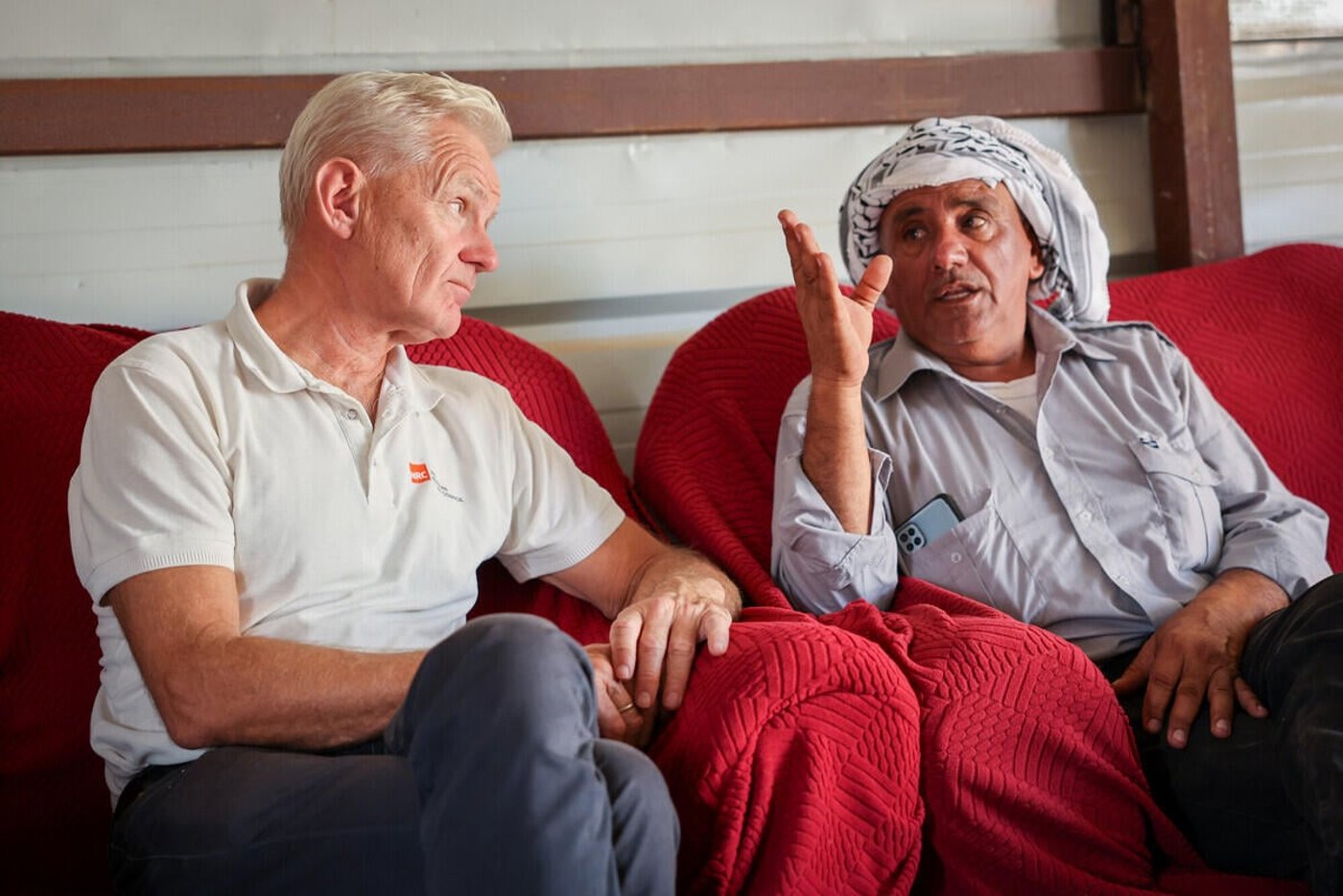“As there is hope at long last in Gaza, the West Bank is being intentionally and brutally carved up,” said Egeland. “The same violence and impunity we saw in Gaza is dispossessing whole communities in the West Bank. Recovery in one part of the territory cannot come at the cost of destruction in another.”
While attention has been fixed on Gaza, violence and restrictions in the West Bank have intensified. Since January, at least 199 Palestinians have been killed and more than 3,200 injured by Israeli forces or settlers. Military operations in Jenin, Nur Shams, and Tulkarm refugee camps have displaced over 30,000 people, yet humanitarian groups remain barred from assessing the full scale of destruction.
“Humanitarians cannot even reach parts of Jenin and Tulkarm camps to verify the devastation, and communities are not allowed to return,” said Egeland. “Restrictions and intimidation are silencing the truth about what is happening.”
Beyond the refugee camps, demolitions and settlement expansion are reshaping the landscape. Nearly 1,400 Palestinian structures, including homes, schools, agricultural buildings and water infrastructure, have been destroyed this year, an average of nearly five each day. This has displaced at least 1,770 people and negatively affected tens of thousands more. Plans for thousands of new settlement housing units, including in the E1 area near East Jerusalem, threaten to split the West Bank in two and make a future, viable Palestinian state impossible.
“I witnessed how Israeli settler violence, backed by the authorities – including Israeli cabinet ministers – is driving vulnerable Palestinian communities from their homes,” said Egeland.
In the first nine months of this year, the UN documented an average of more than four violent settler attacks per day, which have led to the forced displacement of 1,276 Palestinians.
“It was heartbreaking to meet with families driven from their homes by unrelenting settler violence – their lives disrupted and livelihoods lost. Entire communities are being erased,” said Egeland. “Many families I listened to are having their land – land they have lived on for generations – stolen from them. Some communities have lost their water connection as settlers have diverted the supply: how can such actions go on with total impunity?”
Humanitarian organisations are also facing growing restrictions. In March 2025, Israel introduced new registration rules for international agencies that could prevent them from operating anywhere in the occupied territory.
“Israel’s new registration rules for international organisations strike at the heart of international humanitarian relief,” said Egeland. “If enforced, they will paralyse our life-saving work. Donors cannot remain silent while access to aid becomes a political tool. There is a systematic effort to suppress accountability, which must be met with coordinated international action”.
The New York Declaration, adopted at the UN General Assembly in September, provides a roadmap to end the occupation and achieve Palestinian statehood.
“Recognition of Palestine by 157 countries shows overwhelming global consensus that the occupation must end. The time for statements has passed – states that recognise Palestine must now act on their commitments by holding Israel accountable for annexation, demolitions and the obstruction of aid. Recognition means nothing if there is no land remaining for a viable Palestinian state,” said Egeland.
Notes to editors
-
Photos and b-roll from Egeland’s visit to the West Bank are available for free use here.
-
NRC has been working in the occupied Palestinian territory since 2009, and in 2025 has supported 10,000s of Palestinians across the West Bank with:
-
-
legal counseling and assistance to keep Palestinians in their homes, prevent forcible transfer and displacement and support the return of displaced Palestinians;
-
-
-
multipurpose cash to help displaced families meet their individual needs;
-
-
-
educational programming, including provision of psychosocial support and remedial classes;
-
-
-
emergency shelter and water, sanitation and hygiene (WASH) support for families who have been displaced or lost access to their water resources;
-
-
-
protection services for displaced communities or communities at risk of displacement.
-
-
Since January, at least 199 Palestinians have been killed and more than 3,200 injured by Israeli forces or settlers (UN).
-
Since January 2025 Israeli military operations in Jenin, Nur Shams and Tulkarm refugee camps have displaced over 31,919 people, yet humanitarian monitors remain barred from assessing the full scale of destruction (UN).
-
In 2025, nearly 1,400 Palestinian structures have been destroyed, an average of nearly five each day, displacing 1,772 people and affecting tens of thousands more (UN).
-
In the first nine months of 2025, there has been an average of more than four settler violence incidents per day in the West Bank (UN).
For more information or to arrange an interview, please contact:
-
NRC global media hotline: media@nrc.no, +47 905 62 329


